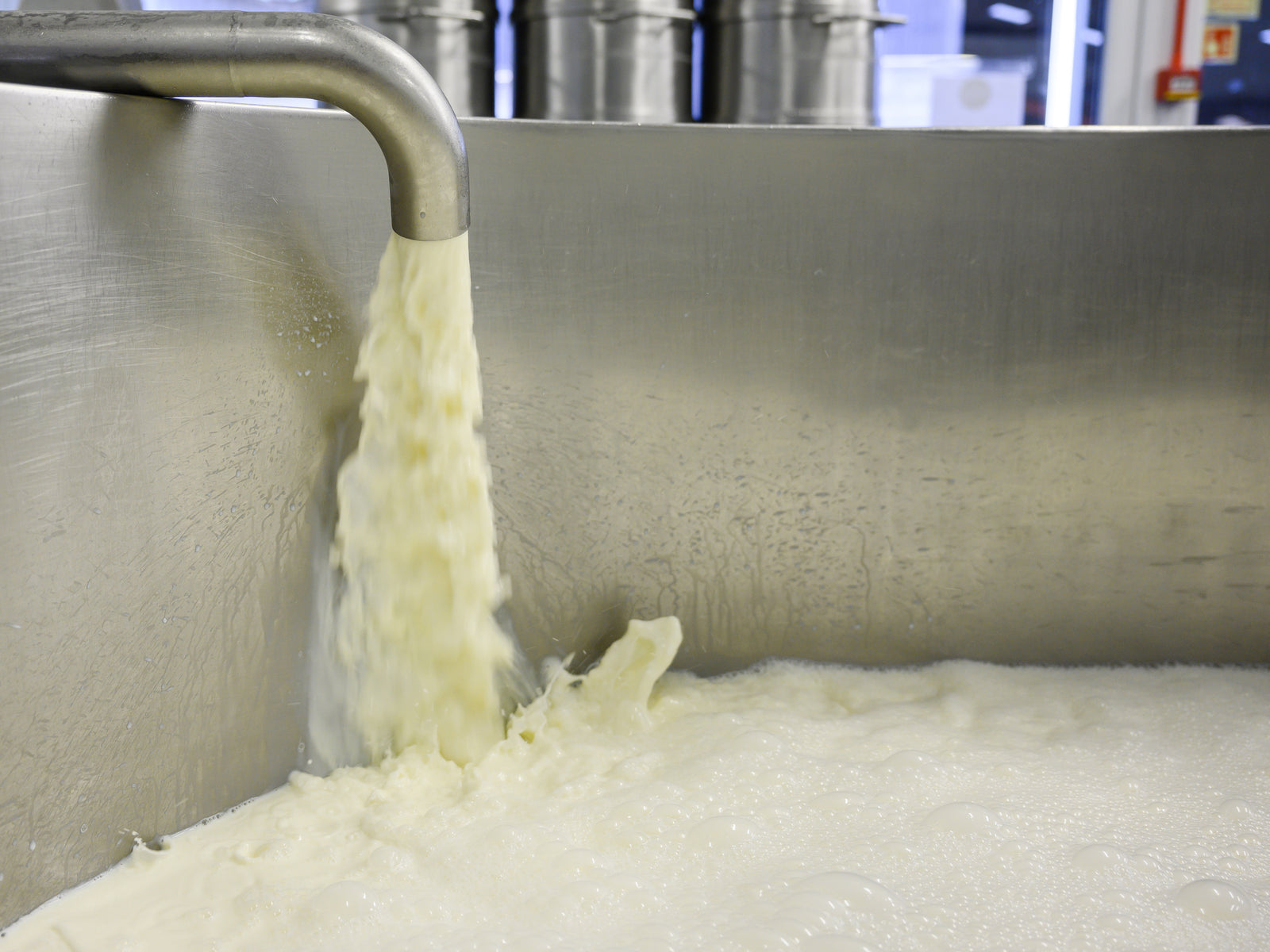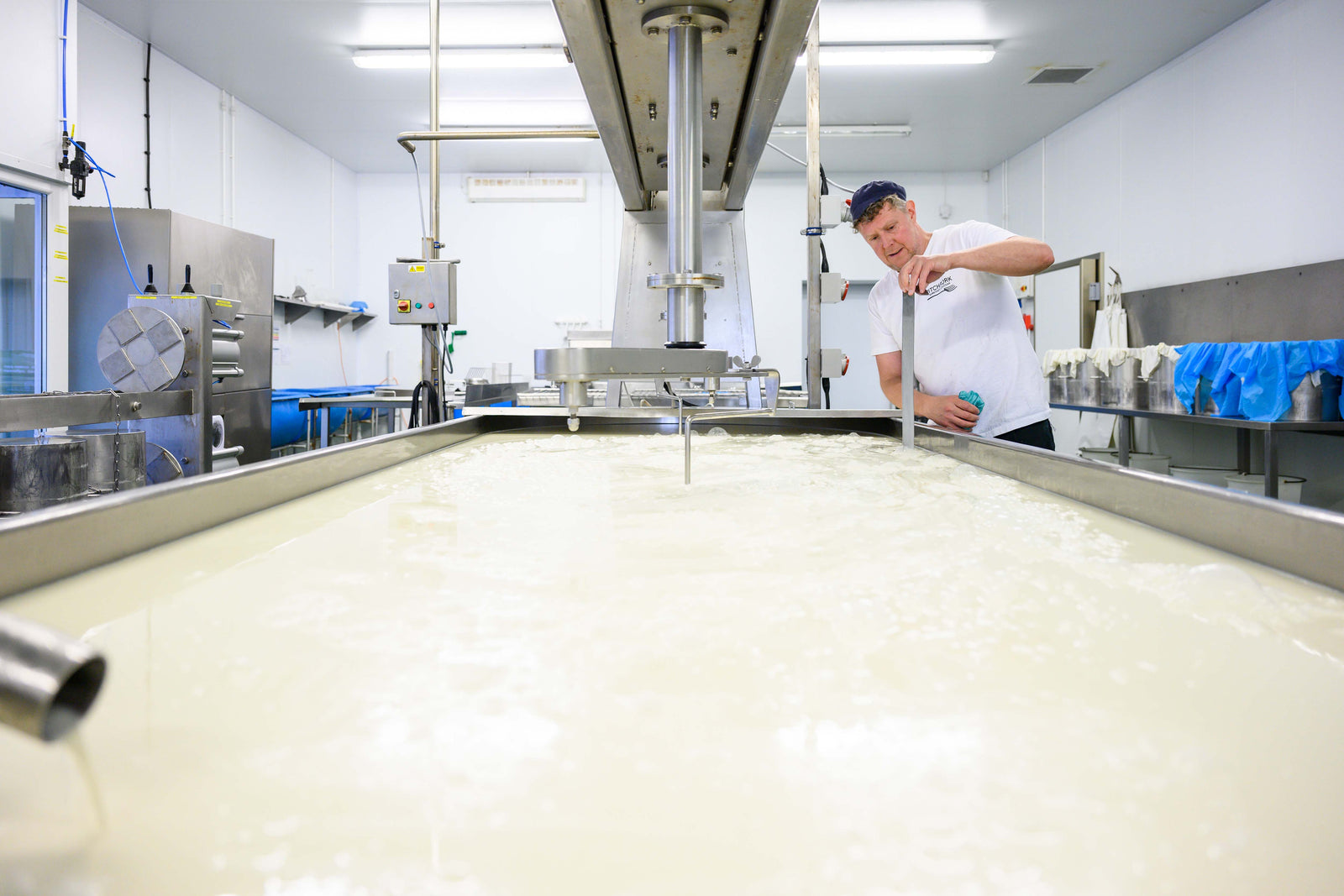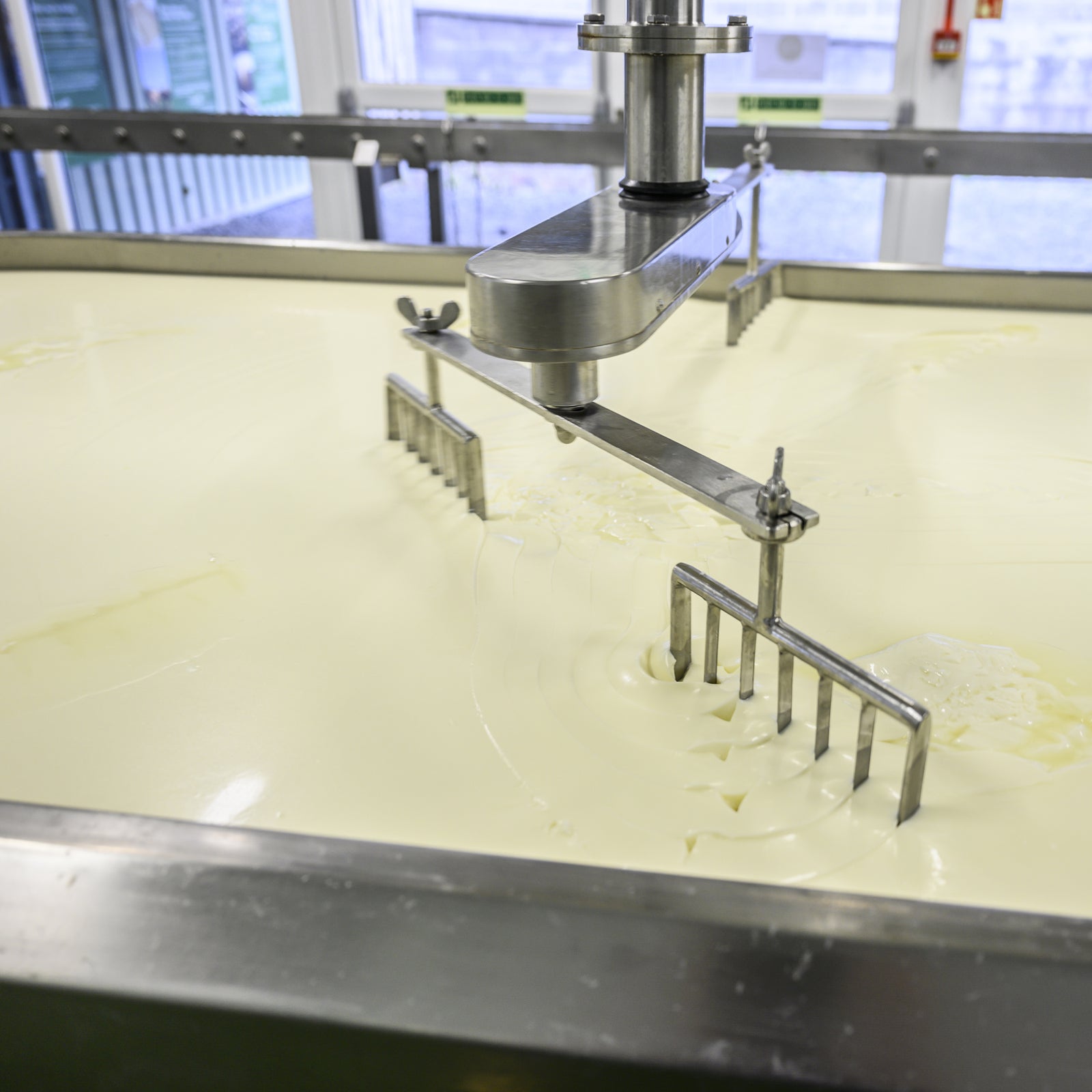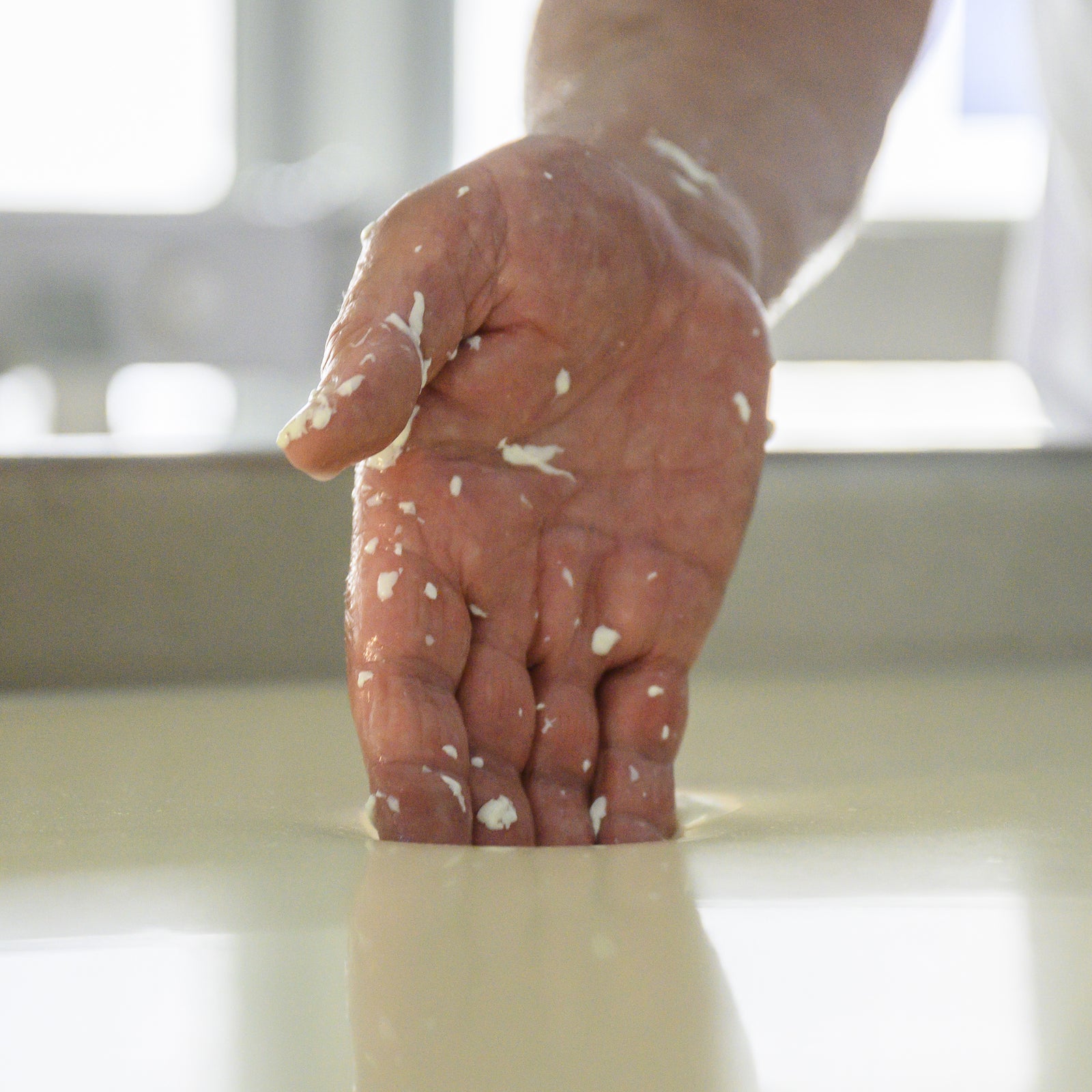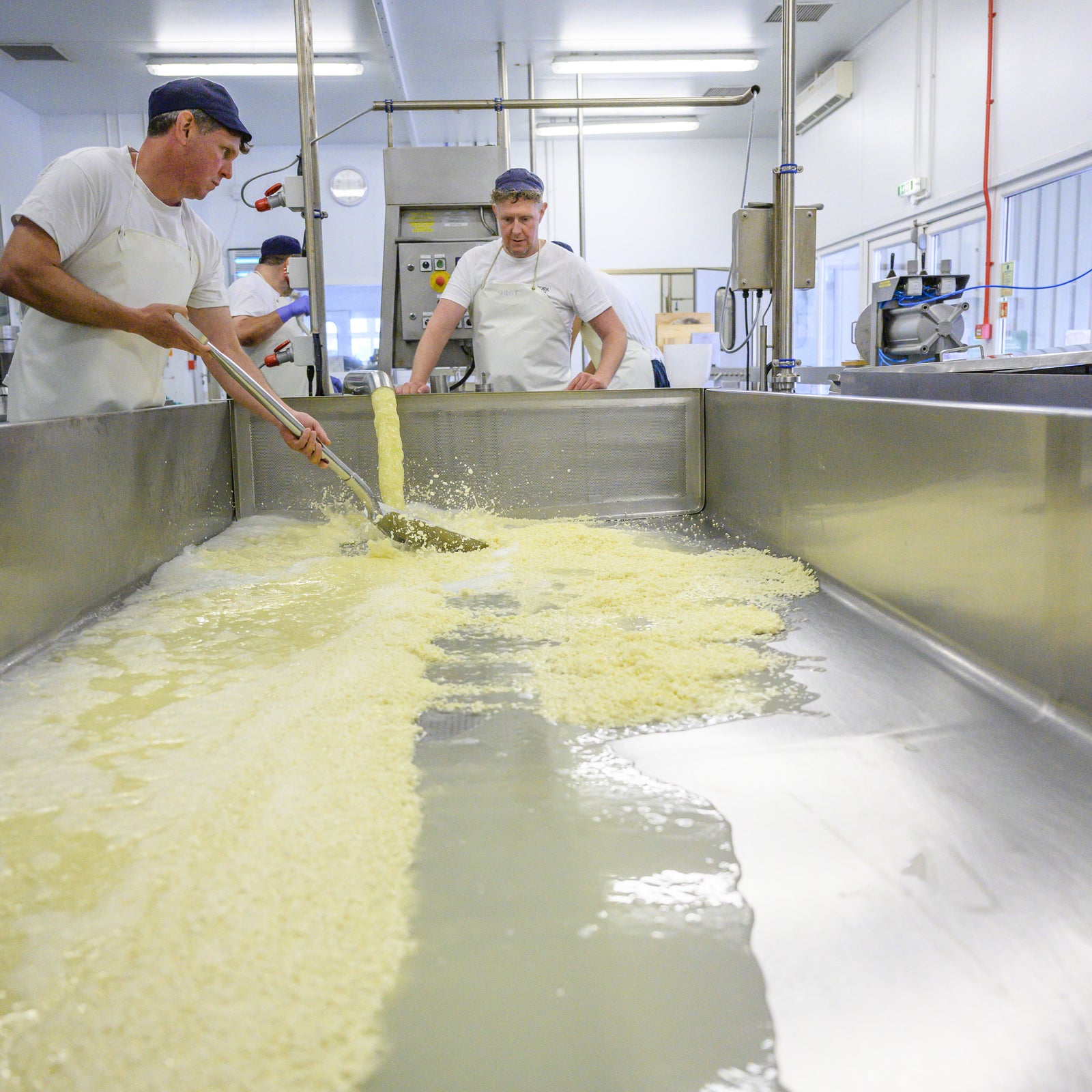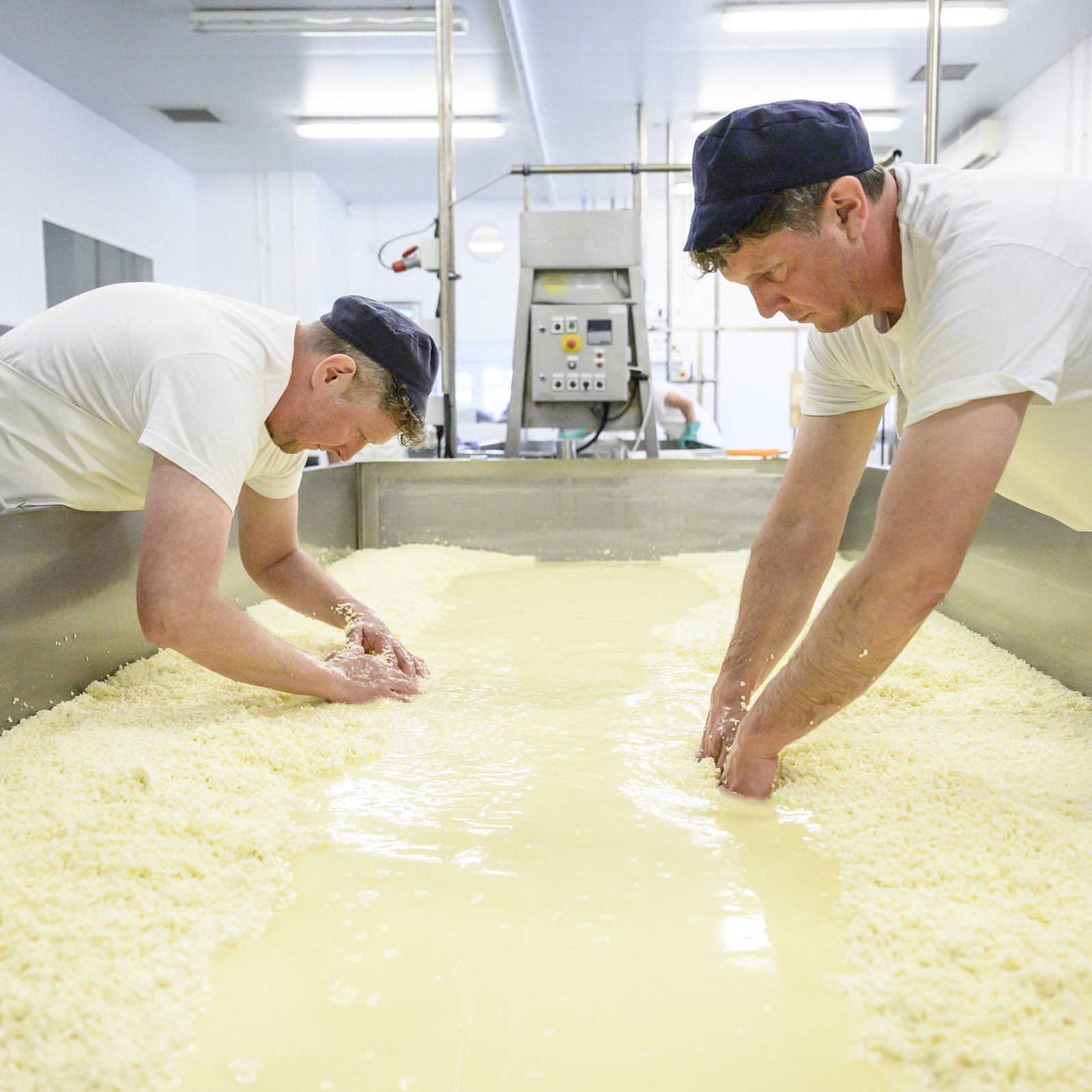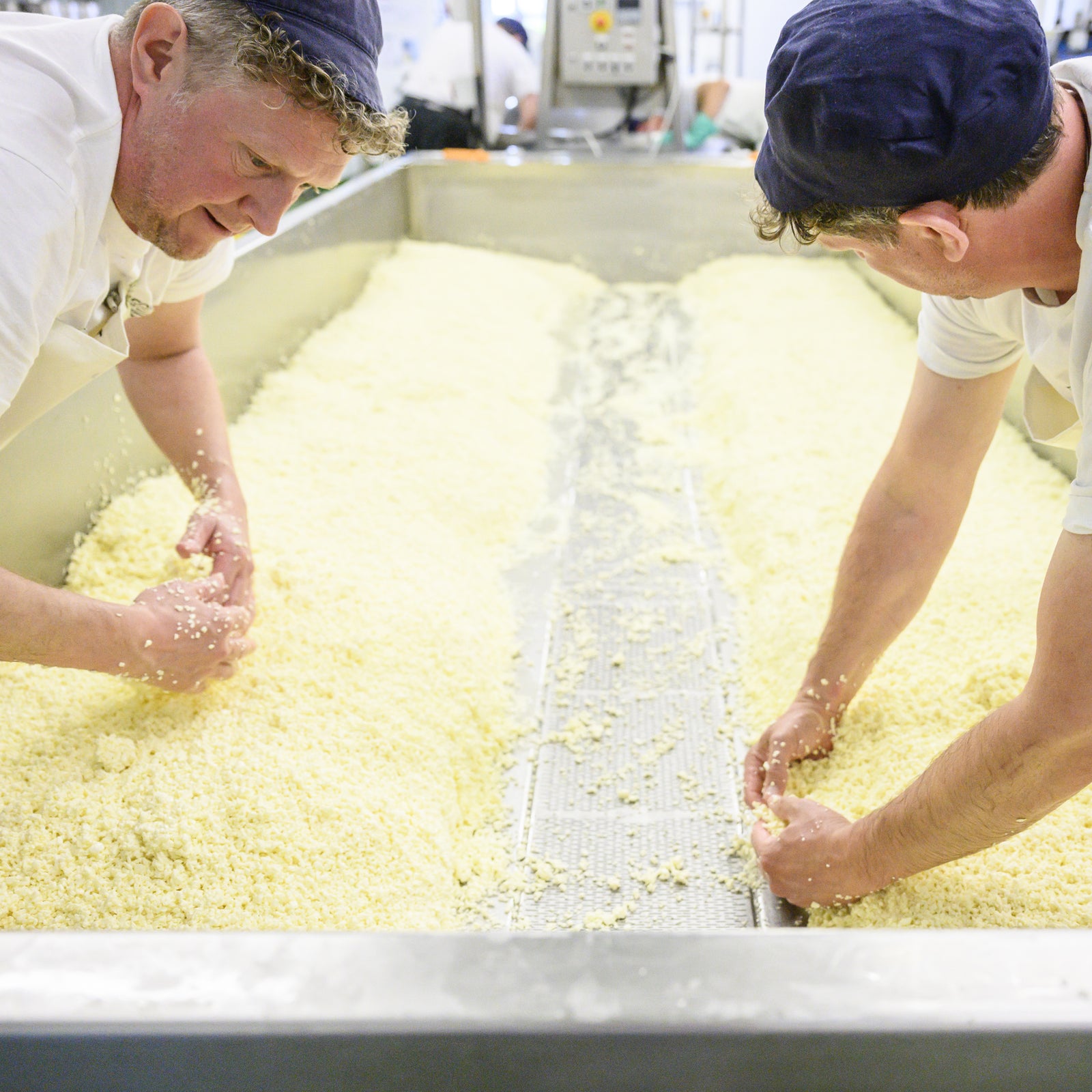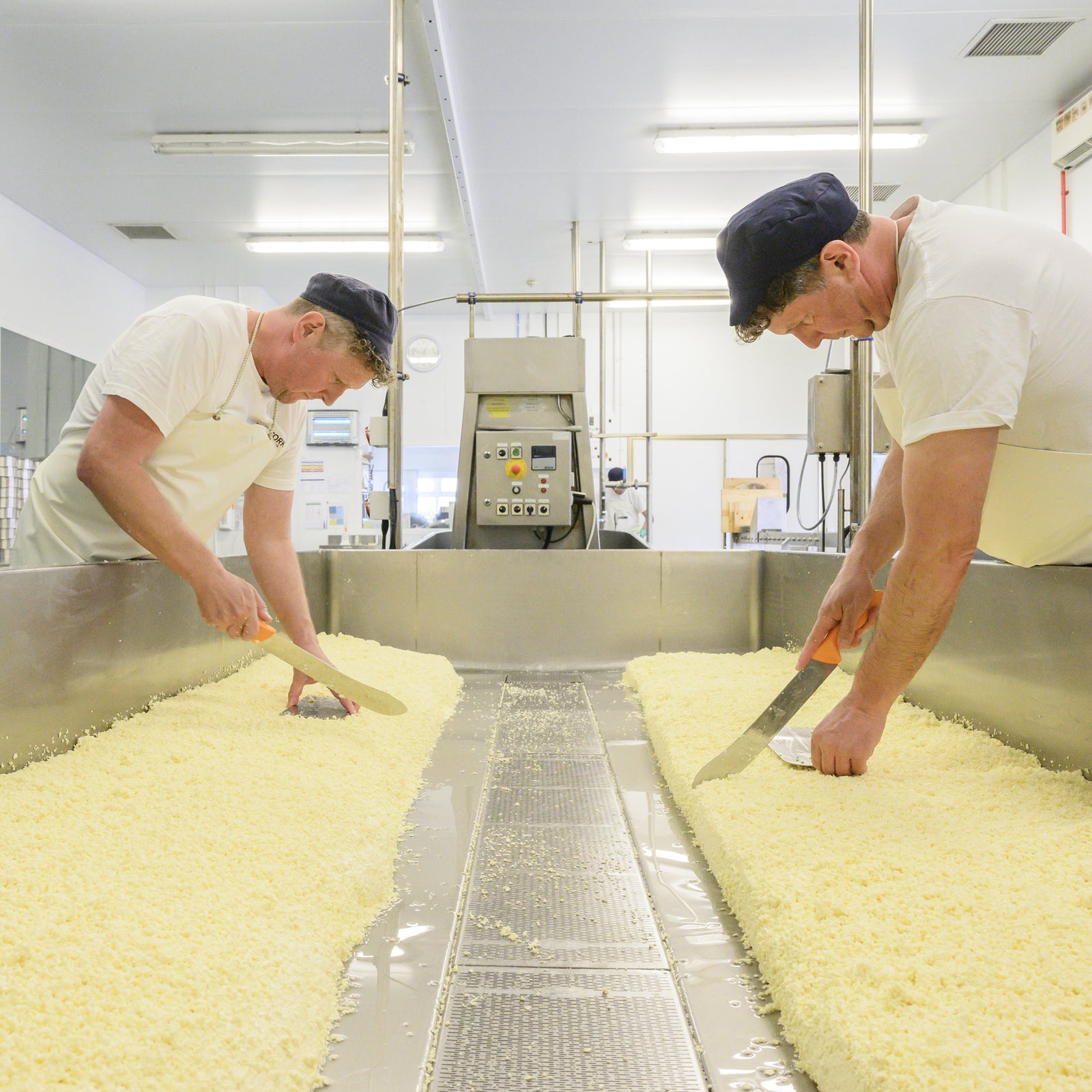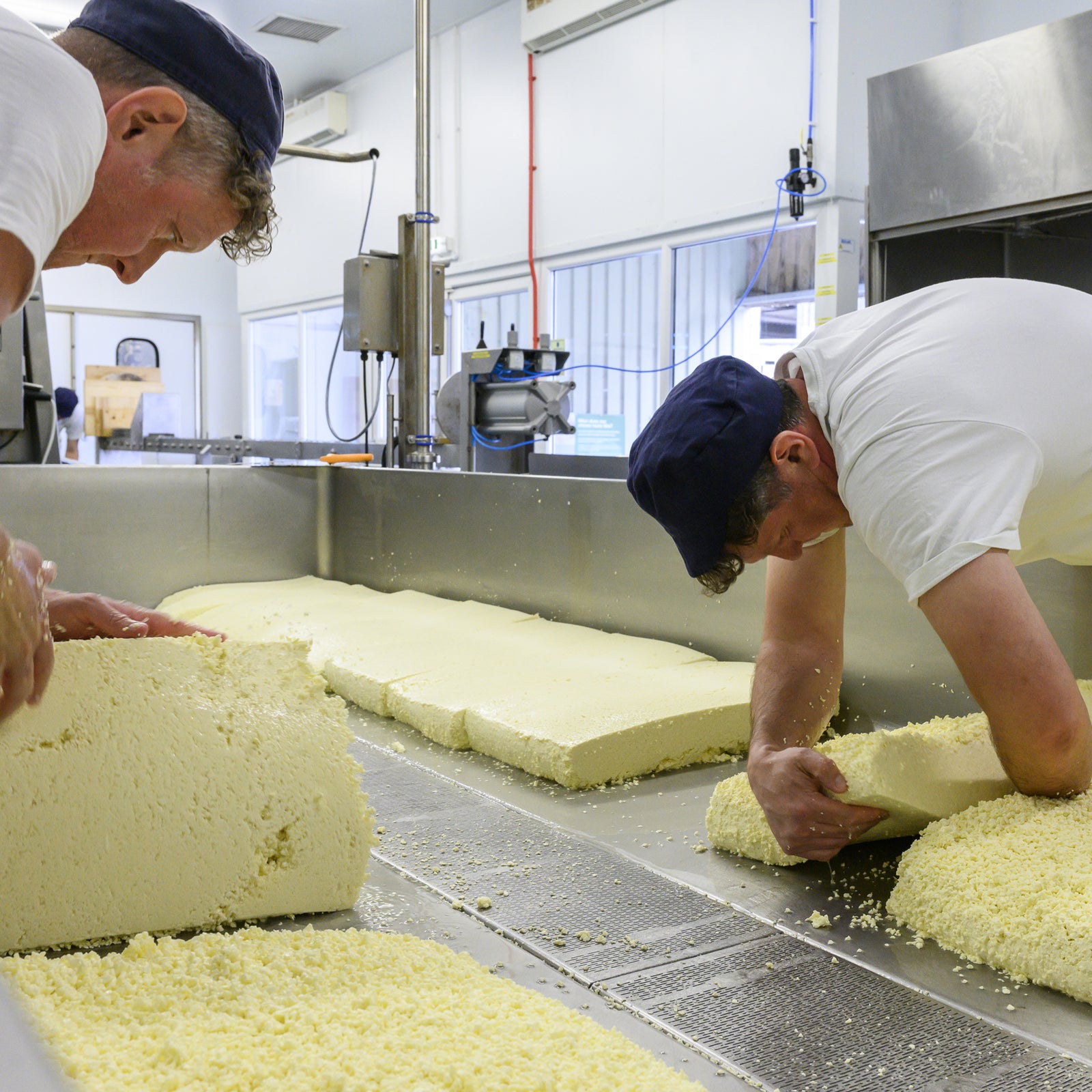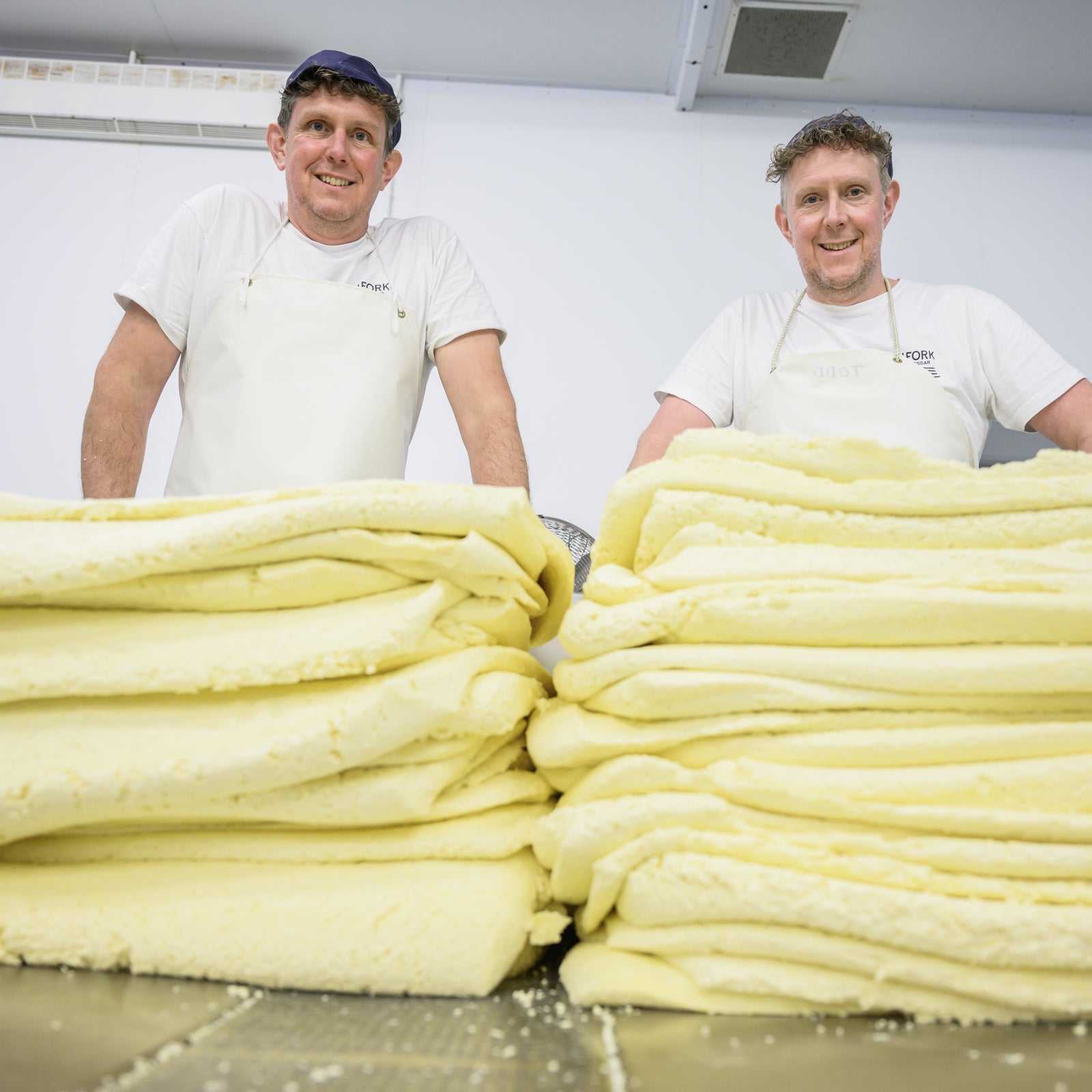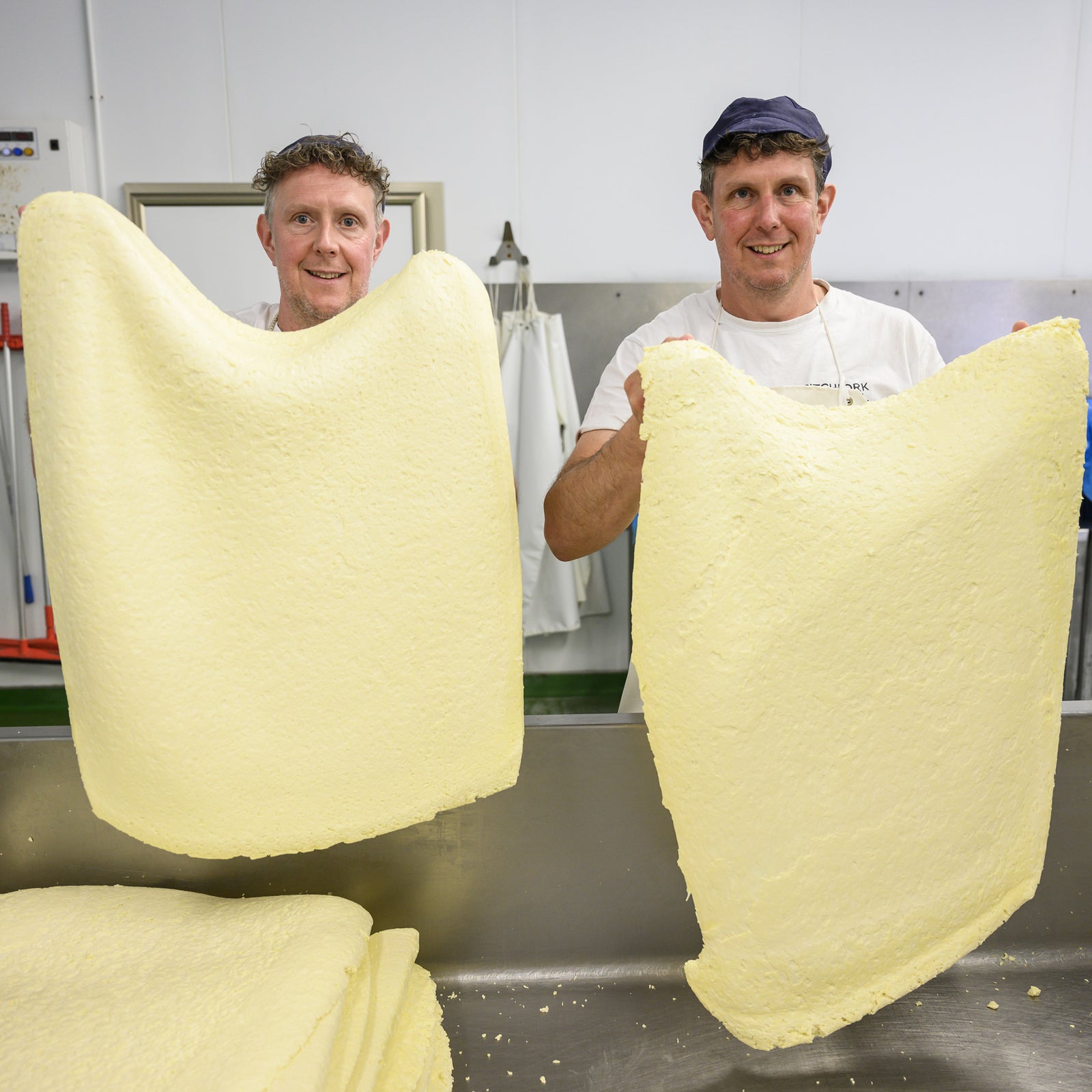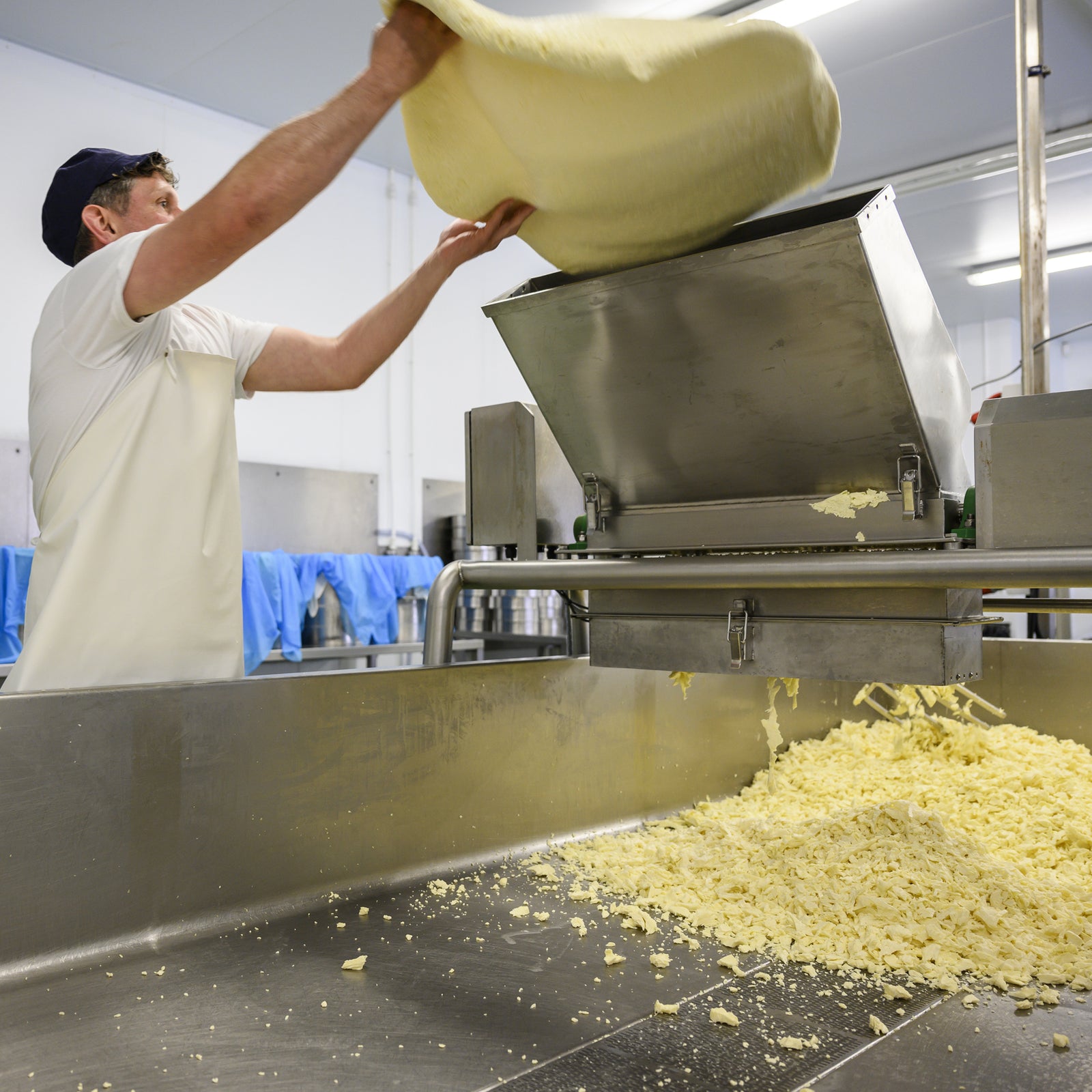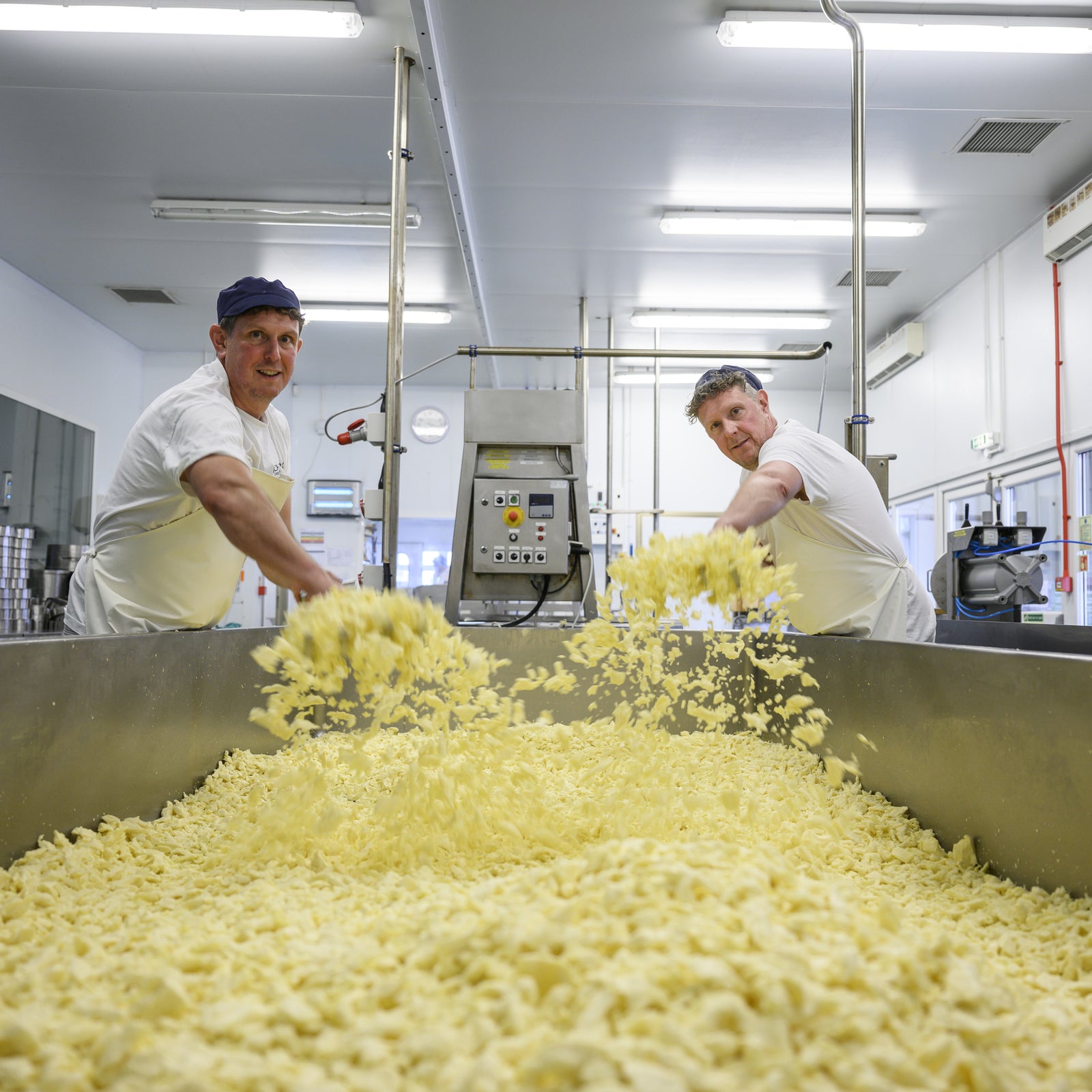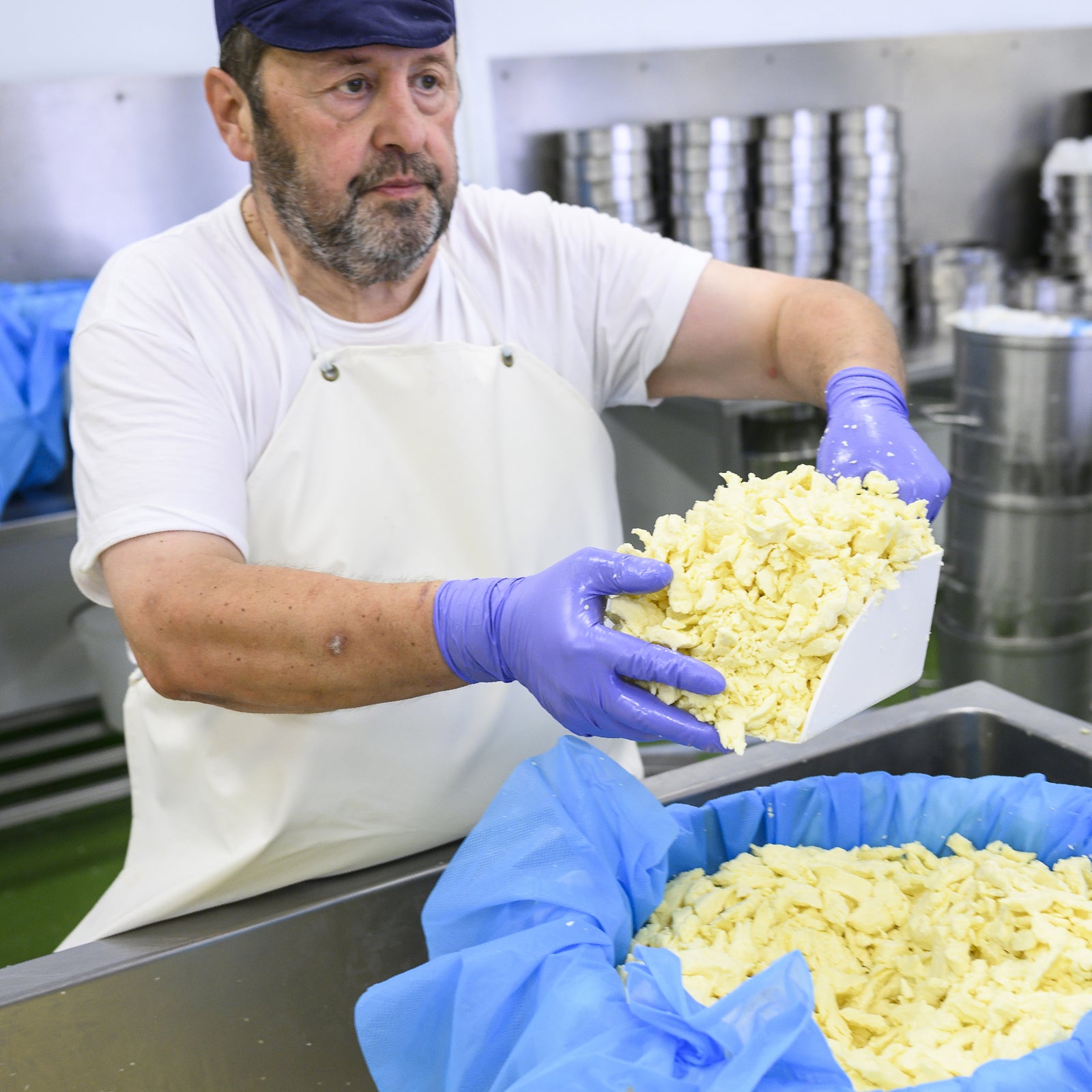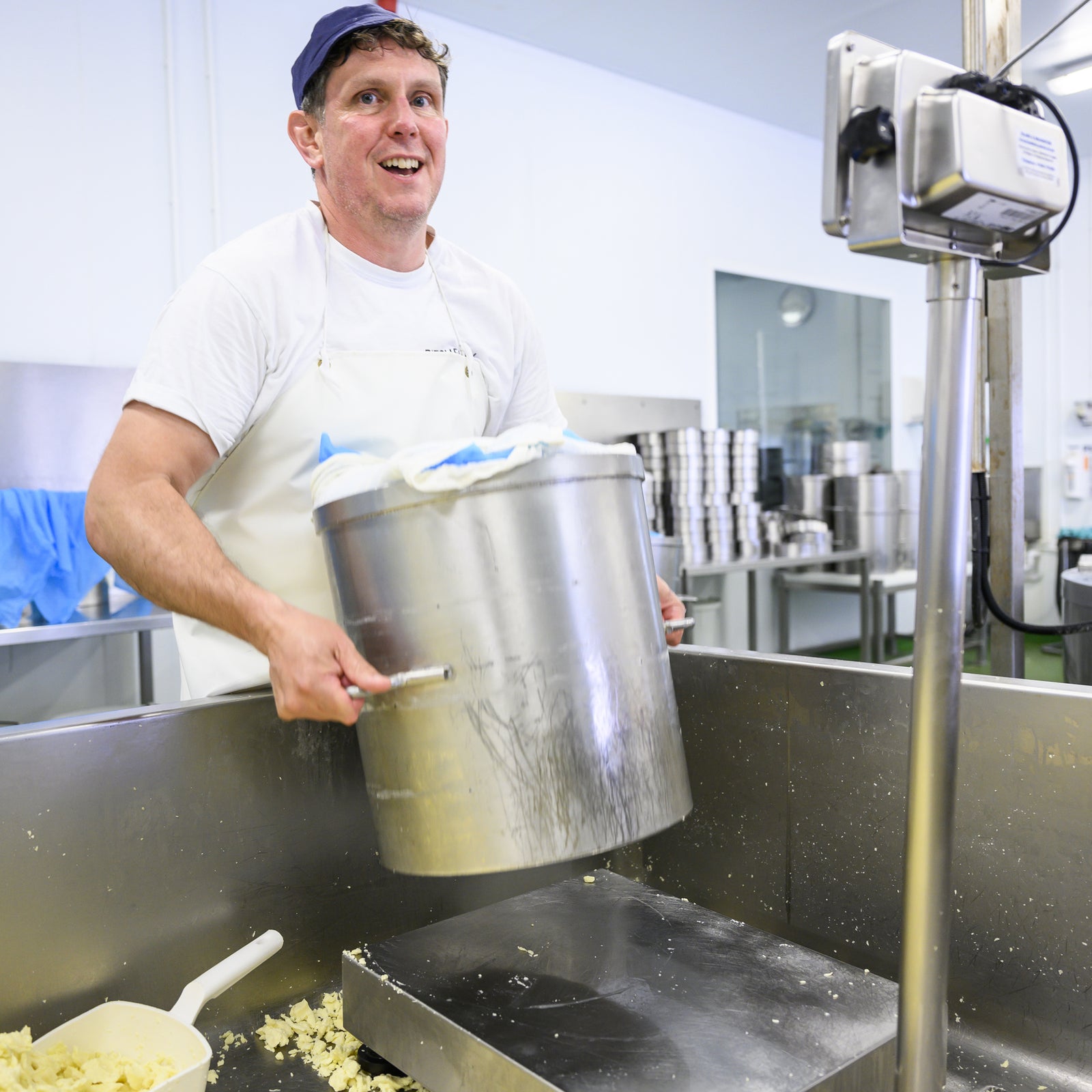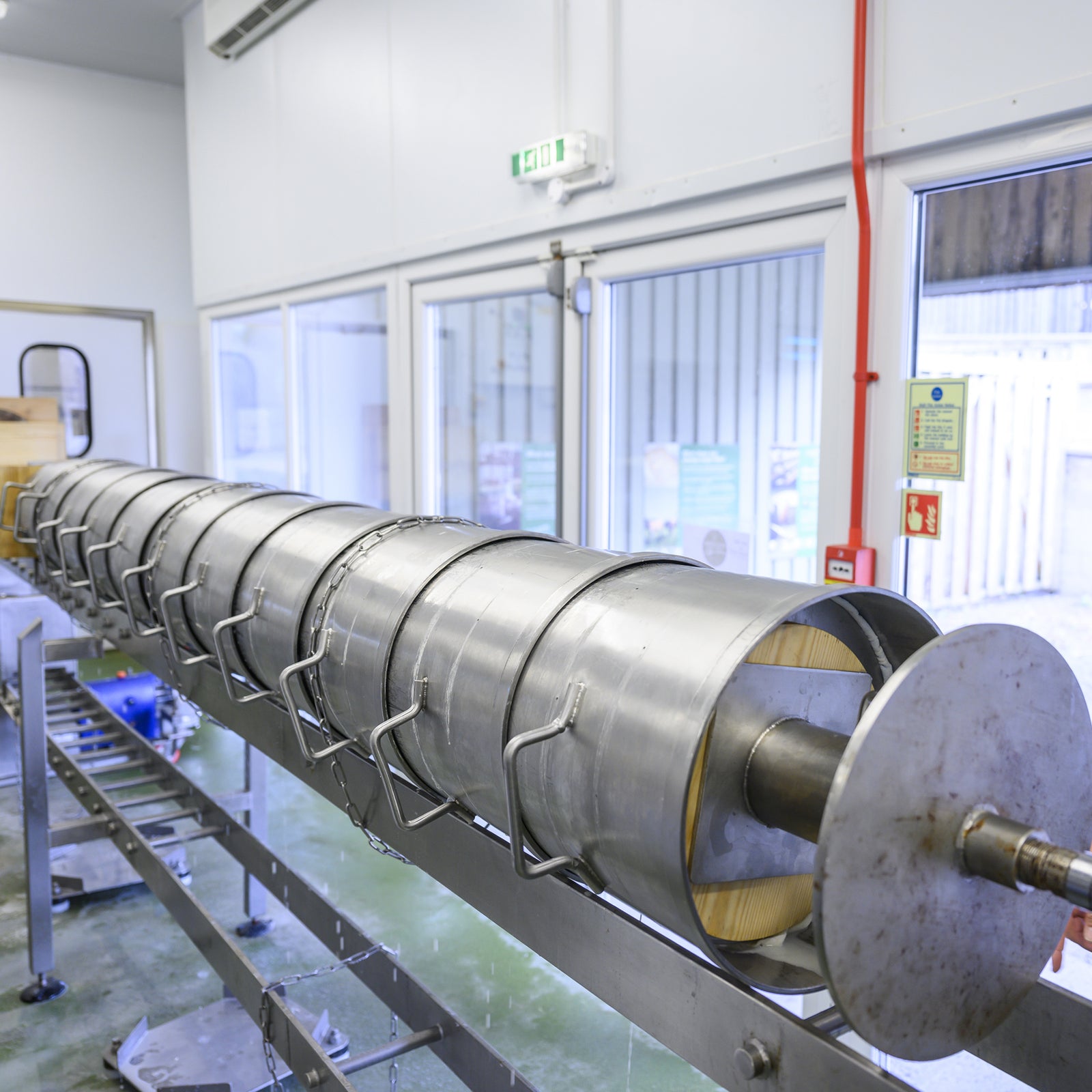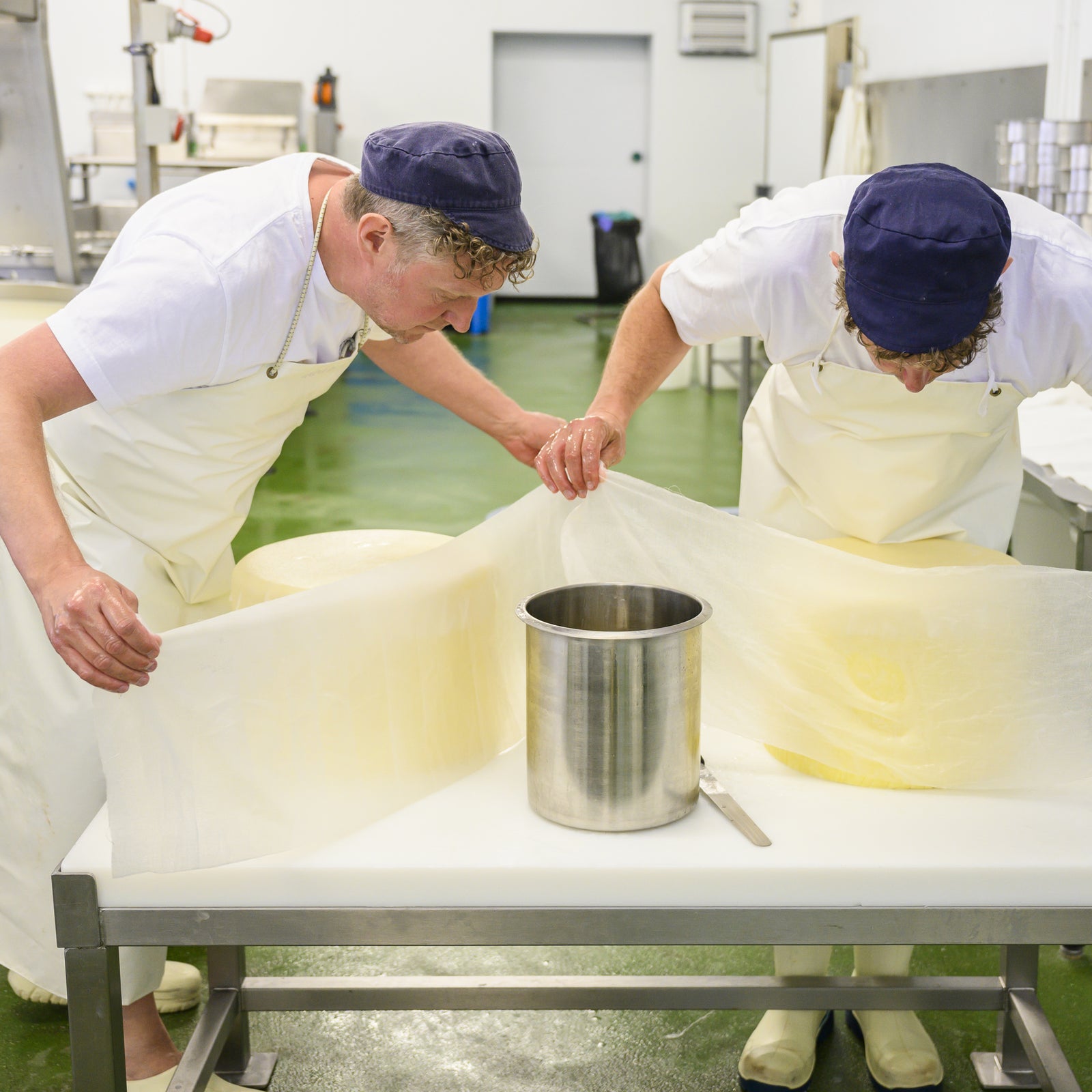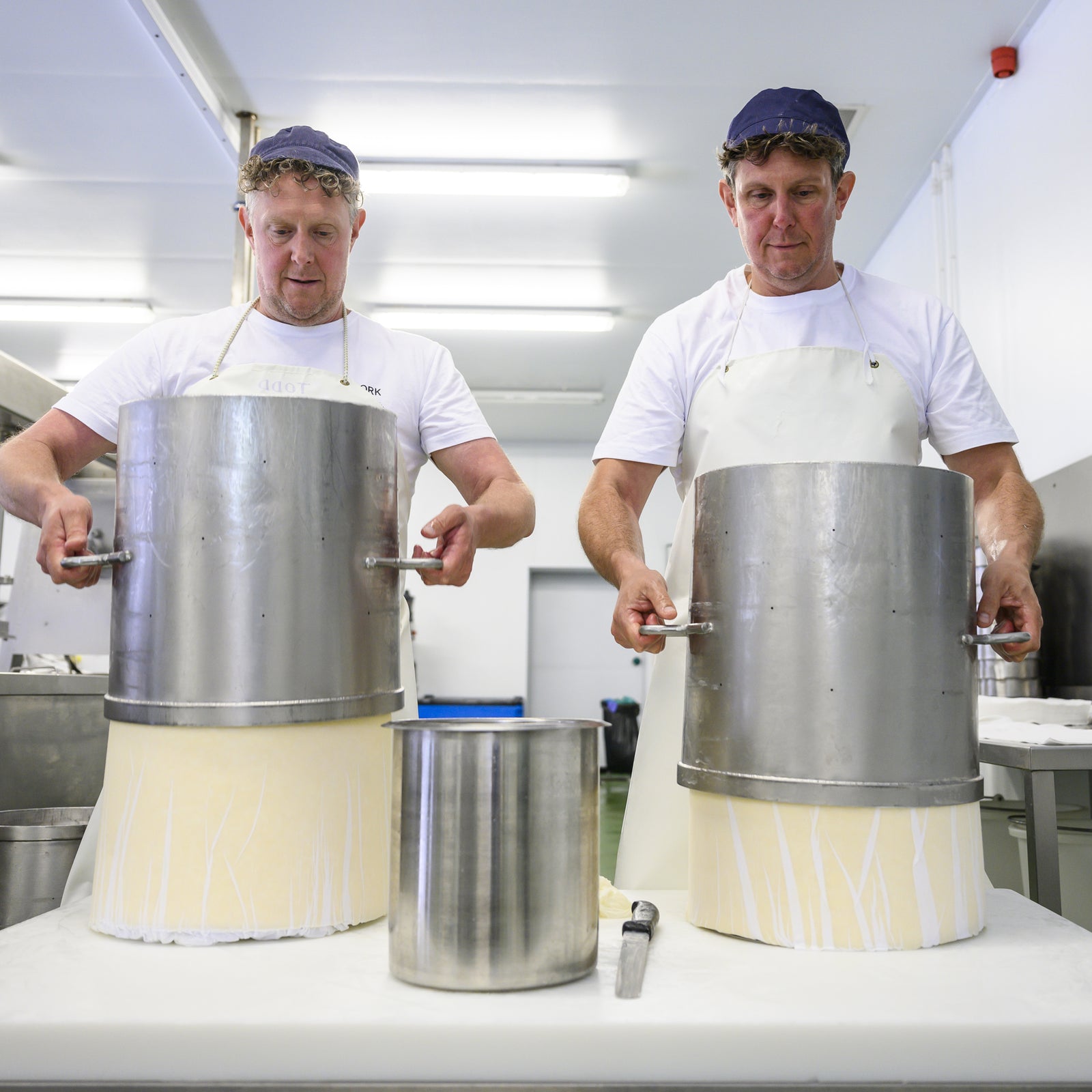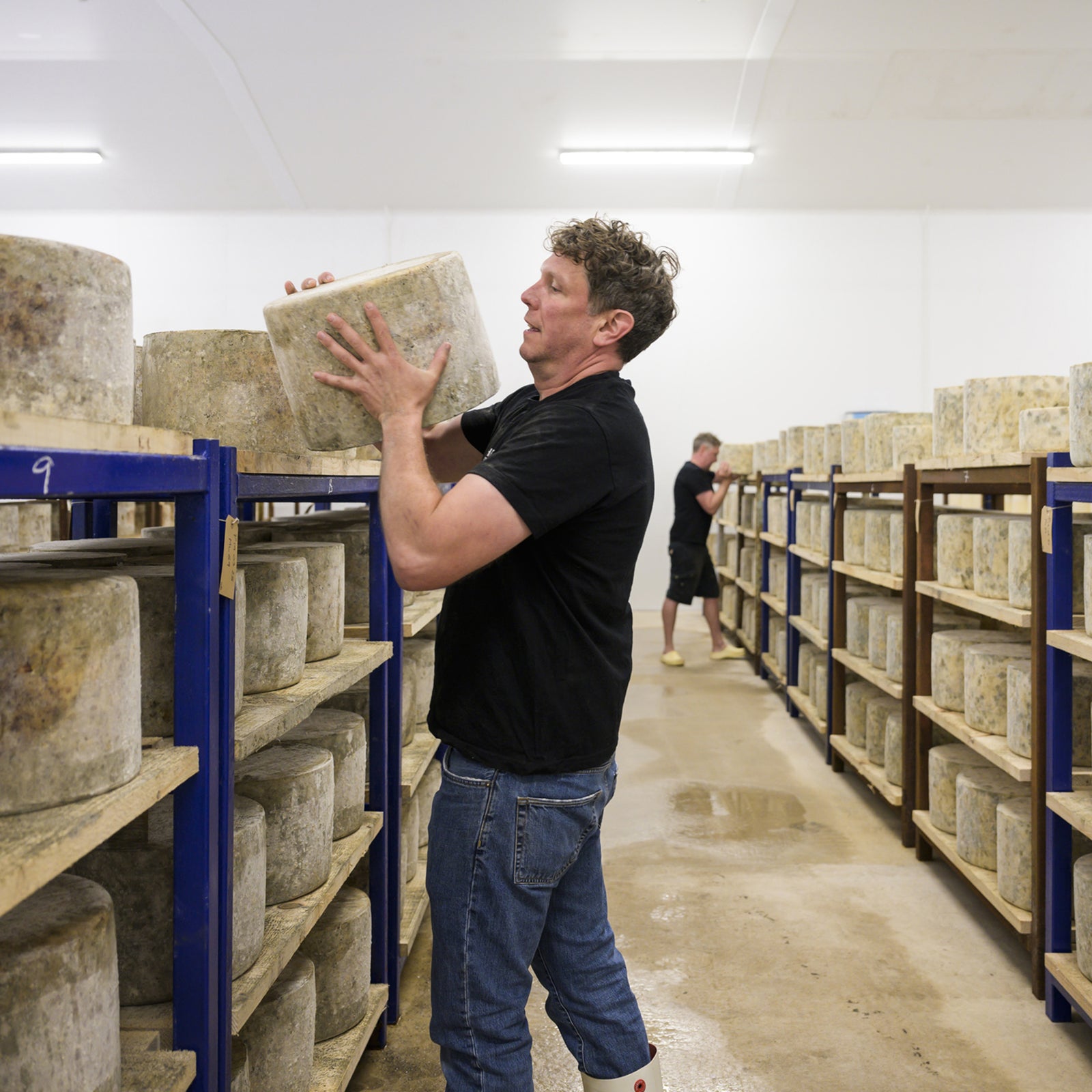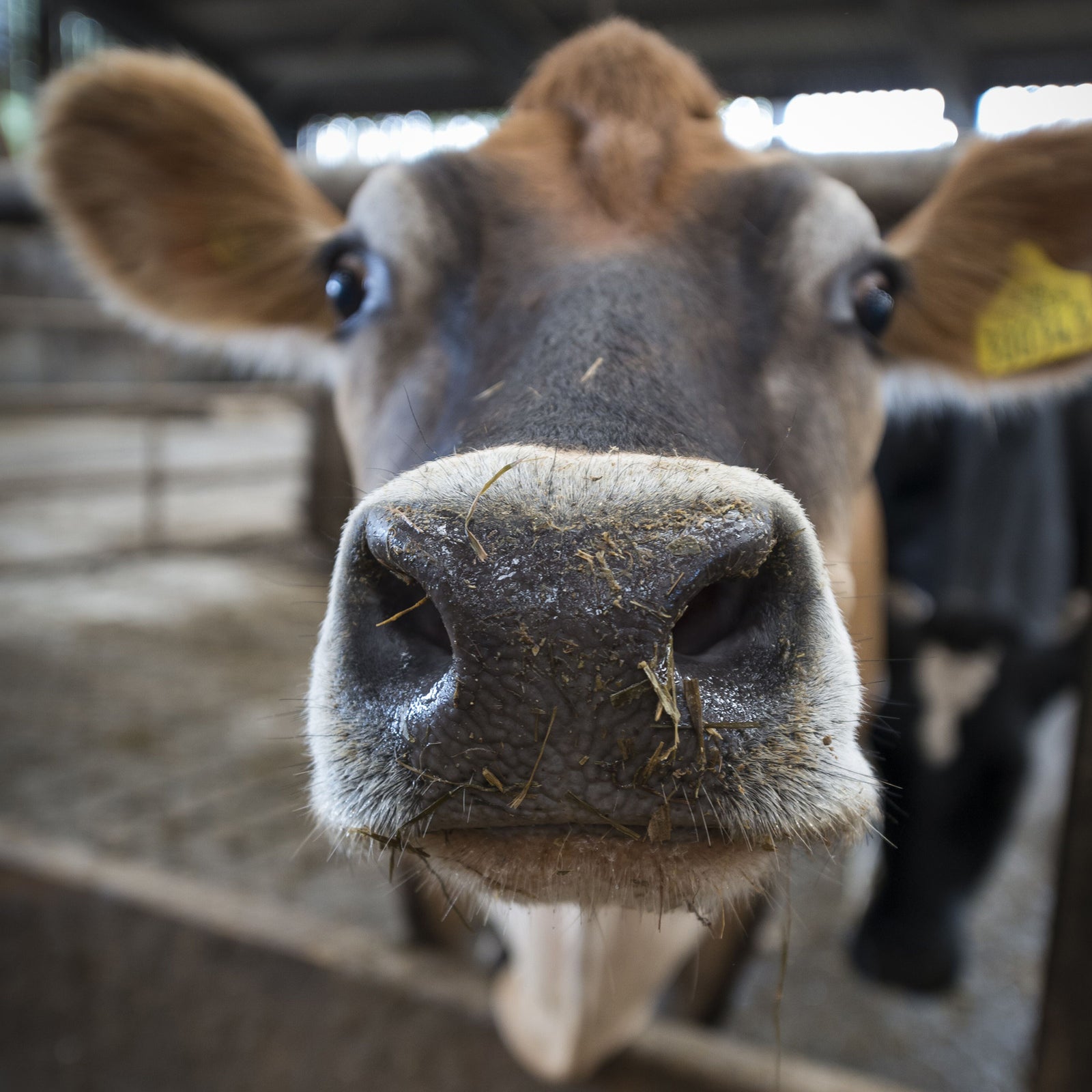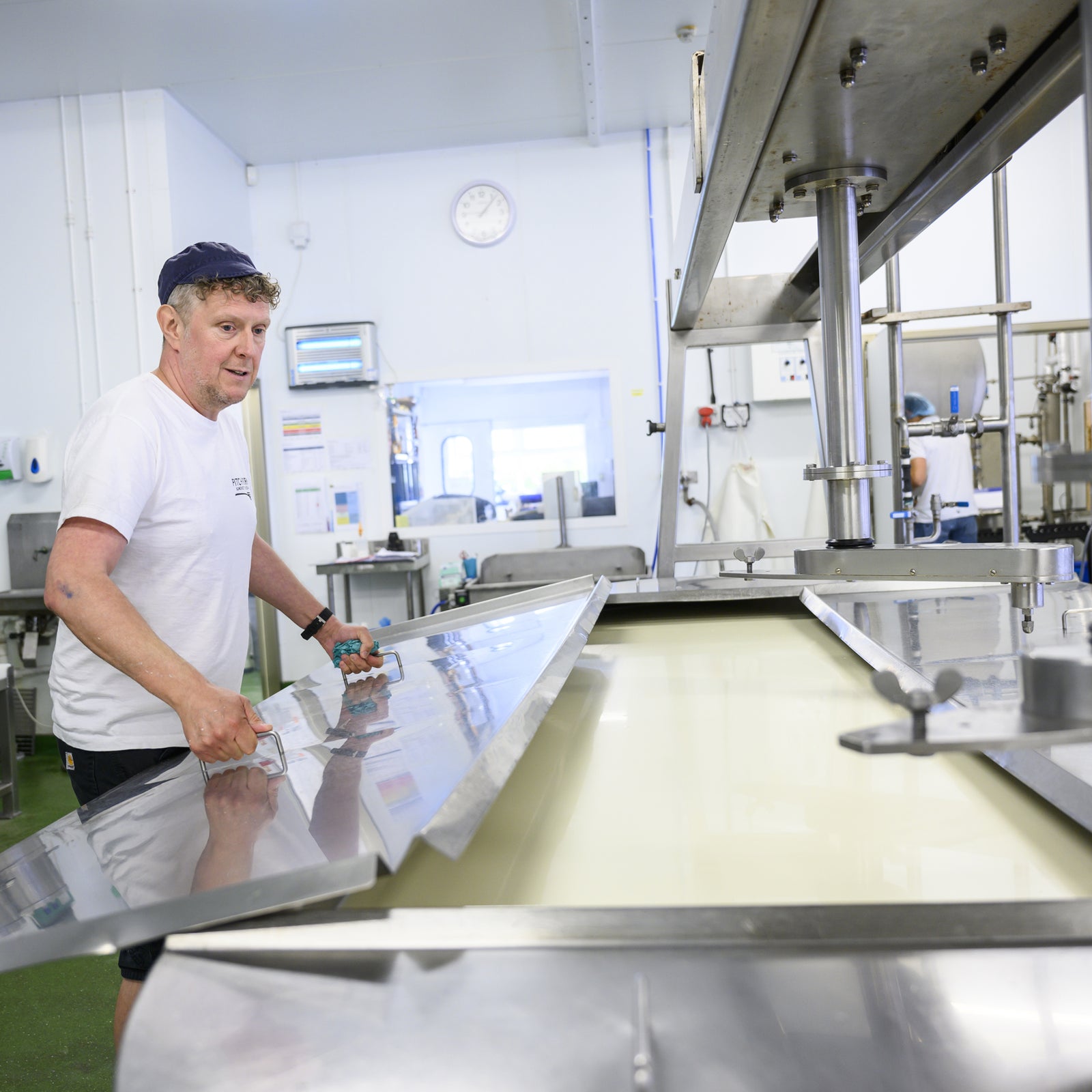The process we use to make our cheese follows traditional methods and is very much ‘hands on’, we use no machinery. From the very beginning, the milk is fed directly into the dairy via gravity. This prevents ‘shearing’, where the makeup of the milk can be damaged if it is forced through pipes under pressure, adversely affecting the end texture of the cheese.
We are involved in every step of the process and it is vital for us to be able to see, touch and smell the cheese at each stage. We use open vats especially for this purpose.
We cut and stir the curds, toss the Pitchfork curds with specially made pitchforks, fill the cheese moulds, all by hand. This is because cheese curds are so very delicate and mechanical processes and kit can overwork and ‘mash’ them, affecting the end taste and texture of the finished cheese.
Finally our cheeses are placed in our maturing rooms where we turn, brush and monitor them for 2-3 months for Caerphilly and up to 12-15 months for Pitchfork Cheddar. Every stage for us is special and we never deviate or cut corners from this fascinating process of turning beautiful raw milk into handmade, artisan cheese.
The fresh milk at the start of the day, the heritage starter cultures we add, the subtle differences as each season changes and what we learn from each make; we are always aiming to improve on the last batch, to keep creating the best quality cheese possible.
For us, the use of raw, unpasteurised milk is the fundamental starting point for our cheese. Puxton Farm’s 120 Holstein-Friesian cows gives consistently high quality milk with a high cream content, thanks to the addition of 10 lovely Jersey cows also in the herd.
The fields that the cows spend their time in throughout the spring, summer and autumn has deep, fertile, silt based soil and was a salt marsh in the distant past. This means that the flavour of the cheese subtly changes throughout the seasons, reflecting the wonderful biodiversity of the pastures.
Something extremely important to us and our cheese making is our use or raw (unpasteurised) milk. Cheese making is essentially complex microbiology
happening within the milk and as cheese makers, we use key strains of bacteria to convert the sugars in milk into acid.
These key strains are added to the milk in what’s known as the starter culture. With raw milk cheese making, we not only rely on bacteria from the starter but also from the unpasteurised milk itself.
The types and number of bacteria in the milk are determined by several factors but are closely related to how the cows are looked after and what they are fed. It is this fact that helps create a unique link to the land, (and is what the French call the “terroir”).
Unpasteurised basically means 'untreated', so the quality of the milk is totally preserved, maintaining the unique character of the milk. We are very passionate about unpasteurised milk - this is part of what creates each unique batch of our cheeses.
Both our Pitchfork Cheddar and Gorwydd Caerphilly are made with raw, unpasteurised milk from the cows out in the fields where our dairy is built.
